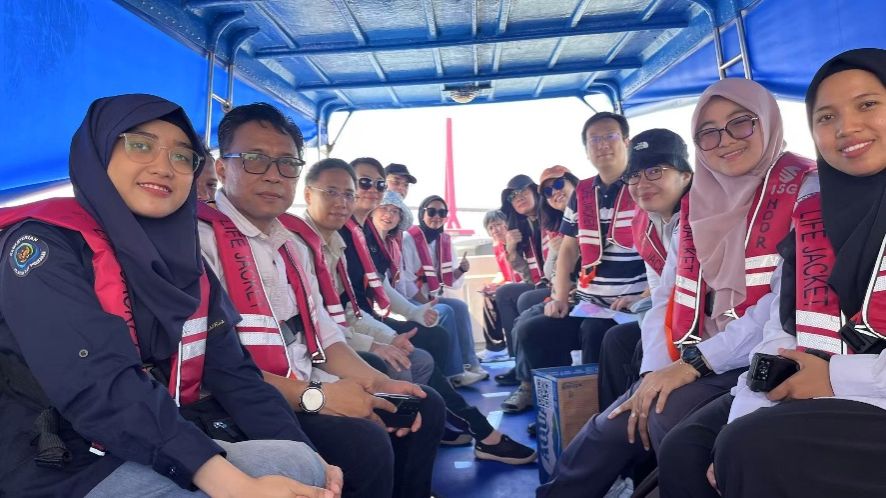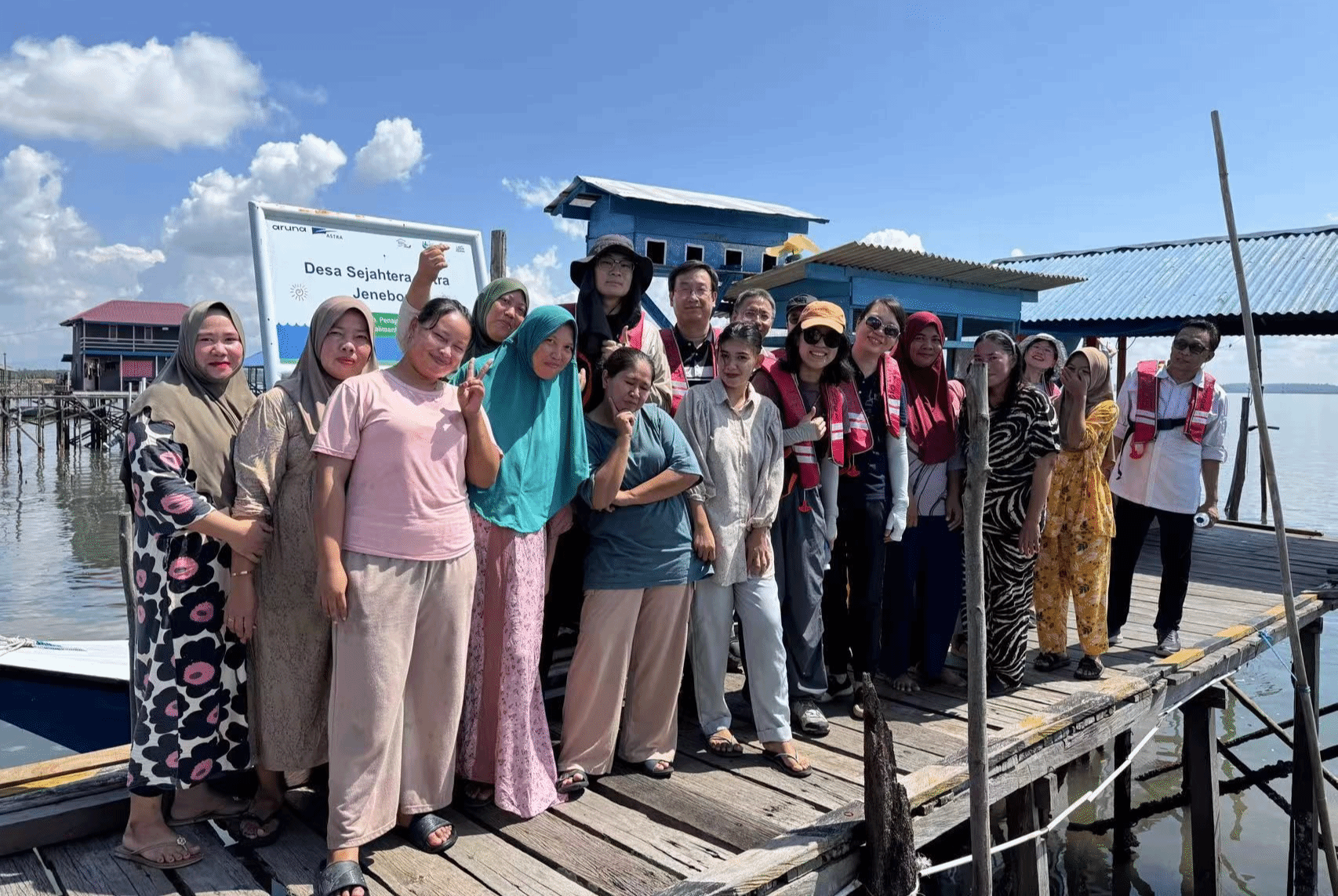2025年5月25日至29日,应印度尼西亚海洋事务与渔业部(Ministry of Marine Affairs and Fisheries, MMAF)邀请,福建海洋可持续发展研究院(厦门大学)(以下简称“闽海院”)副院长李杨帆教授携团队一行共7人赴印尼,就印尼新首都努桑塔拉所在巴厘巴板湾海洋空间规划(MSP)联合研究项目(以下简称“MSP项目”)展开踏勘、座谈与研讨,进一步了解项目研究区域现状,并对项目下一阶段工作进行规划部署。MSP项目技术合作团队专家——福建省海岛与海岸带管理技术研究重点实验室主任罗美雪研究员、副主任翁宇斌副研究员一同参与此次出访。

踏勘合影
Field Visit
团队首先赴巴厘巴板湾进行实地踏勘,重点考察MSP项目涉及的主要用海冲突区域,与当地官员、居民进行交流,深入了解印尼新首都建设背景下,巴厘巴板海域的港口建设、工业和矿产利用、渔业和渔民居住区、旅游开发和生态保护的现状及存在问题。随后,团队前往位于巴厘巴板市的红树林中心,了解当地红树林保护与修复现状以及该区域的生物多样性优势。

巴厘巴板红树林中心踏勘合影
At Balikpapan Mangrove Center

与巴厘巴板湾沿岸渔村居民合影
Photo with residents of coastal fishing villages in Balikpapan Bay
完成实地踏勘后,团队赴印尼首都雅加达拜访MMAF并座谈,MMAF海洋空间规划总局局长Kartika Listriana女士主持座谈会。她强调,双方合作的MSP项目为印尼新首都建设提供了关键的海洋空间规划顶层设计支持,是印尼与中国‘五大支柱’合作在海洋领域的具体体现,意义重大。她期待以此项目为基础,进一步深化与闽海院及厦门大学的合作;闽海院副院长李杨帆教授对MMAF的邀请表示感谢,强调闽海院团队将依托中国海岸带综合管理和海洋空间规划经验,以及厦门大学多学科优势,全力支持巴厘巴板湾的海洋空间规划设计与能力建设。之后,MMAF海洋空间规划局局长Abdi Tunggal Priyanto博士简要回顾了MSP项目所开展的工作,双方围绕项目展开了交流,气氛融洽。

于MMAF海洋空间规划总局合影
Group photo at MMAF Directorate General of Marine Spatial Planning
团队还受邀赴印尼茂物农业大学(IPB)参加MSP项目研讨会,就项目技术问题进行交流和研讨。会议由IPB海事海洋与渔业国际研究院主席Luky Adrianto教授主持,他表示十分赞赏中国构建“从山顶到海洋”的保护治理大格局,特别是厦门市在生态文明实践中取得的卓越成效,认为可供印尼海洋空间规划借鉴参考。李杨帆教授在致辞中指出中方团队愿意为印尼新首都所在区域的陆海统筹和可持续发展提供技术支撑、分享理念经验,在科学评估基础上与印尼方合作开展系统性海洋空间规划。会上,MMAF海洋空间规划总局数据管理与国际合作主管Deenisa女士汇报了印尼方工作进展;罗美雪研究员分享了中国海洋空间规划的经验,MSP项目组博士研究生张卓航与张梓巍结合巴厘巴板湾实际情况展示了相关技术路线和规划思路,双方的交流增进了理念和技术的互鉴。研讨会还对下一阶段工作进行了规划部署。最后,MMAF海洋空间规划总局海洋与海岸带生态环境高级顾问Suharyanto先生总结道,中印尼两国手足情深,政府间互动频繁,在此背景下,MMAF与闽海院的合作必将日益紧密。他期待双方进一步扩大合作规模,推动印尼现代化发展与环境保护的平衡。Abdi Tunggal Priyanto博士 、MMAF海岸带与岛屿管理局局长Permana Yudiarso先生、MMAF海域使用管理局局长Fajar Kurniawan先生及MMAF、印尼茂物农业大学、印尼卡渣玛达大学等相关技术人员参加了研讨会。

MSP项目研讨会合影
MSP Workshop
此次为期五天的交流与考察活动,标志着闽海院中印尼MSP合作项目迈入了务实推进的关键阶段。通过实地踏勘与技术研讨,中印尼专家团队共同探索了新首都所在巴厘巴板湾海洋空间规划的创新方案。此次行程不仅深化了双方的理解互信,巩固了闽海院团队与印尼涉海单位、高校多年合作积淀的深厚友谊,更为项目下一阶段的精准实施奠定了坚实基础。正如双方代表所期许的,MSP项目探索的 “平衡生态保护与现代化发展”有效路径,不仅服务于新首都建设需求,也有望为印尼其他面临类似挑战的滨海新城开发与生态保护提供有益参考。未来,闽海院将继续与印尼合作伙伴携手,深化海洋可持续发展领域的互利共赢合作,取得更多务实成果。
From May 25 to 29, 2025, at the invitation of the Ministry of Marine Affairs and Fisheries (MMAF) of Indonesia, Professor Li Yangfan, Vice Dean of the Fujian Institute for Sustainable Oceans (FISO), Xiamen University, led a delegation of 7 to visit Indonesia. The purpose was to carry out field survey and technical workshop as part of the Joint Marine Spatial Planning (MSP) project for the Balikpapan Bay area (hereinafter referred to as the “MSP project”), where Indonesia’s new capital Nusantara is located. The visit aimed to better understand the current conditions of the study area, and to discuss the next steps of the MSP project. The delegation included MSP technical team members Research Fellow Luo Meixue, Director of the Fujian Provincial Key Laboratory of Coast and Island Management Technology Study, and Associate Research Fellow Weng Yubin, Deputy Director of the same laboratory.
The team first conducted a field survey in Balikpapan Bay, focusing on the key areas of sea-use conflict within the MSP project scope. Discussions were held with local officials and residents to gain an in-depth understanding of port construction, industrial and mining distribution, fisheries and fishing communities, tourism development, and ecological conservation, under the context of Indonesia’s new capital development. The team then visited the Balikpapan Mangrove Center, learning about the current status of mangrove conservation and restoration, as well as the region’s biodiversity advantages.
After the field survey, the team visited MMAF in Jakarta. Mrs. Kartika Listriana, Director General of the Directorate General of Marine Spatial Planning at MMAF, hosted the delegation. She said that the MSP project offers systematic MSP support for Indonesia’s new capital, representing a fruit of maritime cooperation under the Indonesia-China 'Five Pillars' initiative. She expressed hope that the project would serve as a foundation for further collaboration with FISO and Xiamen University. Professor Li Yangfan expressed his gratitude for MMAF’s invitation and highlighted that FISO would leverage China's experience in integrated coastal management and marine spatial planning, as well as the multidisciplinary strengths of Xiamen University, to support MSP planning and capacity-building for Balikpapan Bay. Dr. Abdi Tunggal Priyanto, Director of Marine Spatial Planning at MMAF, gave a brief summary of the project’s progress, followed by a productive exchange of ideas between both sides.
The team also attended the technical workshop of the MSP Project held at IPB University. The workshop focused on technical discussions and was chaired by Professor Luky Adrianto, Chairperson of the International Research Institute for Maritime, Ocean and Fisheries, IPB University. He expressed strong appreciation for China’s holistic approach to ecological protection “from the mountains to the sea” and the ecological conservation success stories of Xiamen City, which he believes offer valuable insights for Indonesia’s marine spatial planning. Professor Li Yangfan emphasized in his speech that the Chinese team is committed to supporting integrated land-sea development and sustainable development in the region through sharing of technologies, philosophies and experiences, and to collaborating on systematic MSP based on scientific assessment.
During the workshop, Ms. Deenisa, Head of Cooperation and Data for MMAF’s Directorate General of Marine Spatial Planning, presented on the project progress on their side. Research Fellow Luo Meixue then shared China’s experience with MSP. Doctoral candidates Zhang Zhuohang and Zhang Ziwei from the FISO team followed to present technical approaches and planning philosophies based on Balikpapan Bay’s conditions. The exchanges strengthened mutual understanding of planning philosophies and technical approaches. The workshop also mapped out plans for the next phase of work. In closing remarks, Mr. Suharyanto, Senior Advisor on Marine and Coastal Ecosystem for MMAF’s Directorate General of Marine Spatial Planning, said that China and Indonesia “are like sisters and brothers”, and frequent government interactions have taken place during recent years. Against this backdrop, the cooperation between MMAF and FISO is expected to grow ever closer. He expressed hope for expanded collaboration that promotes balanced modernization and environmental protection in Indonesia. Attendees of the workshop also included Dr. Abdi Tunggal Priyanto, Mr. Permana Yudiarso (Director of Shallow Waters and Small Islands Development, MMAF), Mr. Fajar Kurniawan (Director of Marine Space Development), and other technical experts from MMAF, IPB University, and Universitas Gadjah Mada.
This five-day exchange and field visit marks a critical stage of substantive advancement in the MSP project between FISO and MMAF. Through the field trip and technical exchanges, experts from both countries jointly explored innovative planning solutions for marine spatial planning in Balikpapan Bay. The trip not only deepened mutual understanding and trust, but also strengthened long-standing ties between the FISO team and Indonesia’s ocean-related agencies and universities. It laid a solid foundation for the detailed planning of the next project phase. As both parties have expressed, the MSP project’s efforts to balance ecological protection with urbanization are expected not only to meet the developmental needs of the new capital but also serve as a valuable reference for other Indonesian coastal cities facing similar challenges. Looking ahead, FISO will continue to work hand-in-hand with Indonesian partners to deepen mutually beneficial cooperation in the field of sustainable coastal development and to deliver more pragmatic outcomes.


